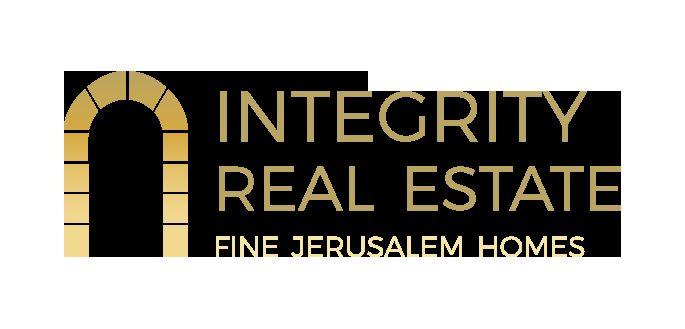
7 minute read
When The Man Of Peace Murders Rabbi Aaron Goldscheider
RABBI AARON Editor, Torah Tidbits GOLDSCHEIDER
When The Man Of Peace
Murders
Our parsha contains the unique mitzvah of the kohanim to bless the people each day with the familiar three-part blessing (Bamidbar 6:22-27). We often refer to his blessing as nesiat kapayim, referring to the raised hands of the kohanim, or as “duchaning” referring to the platform from which they often bless.
The kohanim express their elevated holiness through various restrictions. For example, special regulations surrounding the institution of marriage, the prohibition of becoming defiled from the dead, and the need to maintain purity in order to eat trumah, challah, and sacrifices which are their portion.
However, the kohen can also potentially invalidate his unique status, and in particular his right to offer the daily blessing, by engaging in behavior that runs contrary to their elevated position.
The Talmud states that ‘any kohen who has killed a person may not raise his hands to confer the priestly blessing, as it is stated: ‘and when you spread your hands, I will hide My eyes from you...your hands are full of blood” (Isaiah 1:15) (Berachot 32b).
The Shulchan Aruch (Orach Chaim 128:35) rules that a kohen may not confer the priestly blessing even if the death he caused was accidental (shogeg). Whether or not repentance is effective to allow a kohen who killed to return to his previous standing is the subject of a dispute among the authorities.
In contemporary times, the following related question has been addressed by rabbinic authorities: Is a soldier in the Israeli army who is a kohen, who has killed an enemy soldier or terrorists, now disqualified from performing nesiat kapayim?
The eminent Rav Ovadia Yosef zt”l addressed this question in two places in his writings (Yechave Da’at, 2:16 and Maor Yisrael on Rambam, Chapter 15 of Hilchot Tefillah). He ruled that in this case a kohen is permitted to recite Birkat Kohanim since an Israeli soldier’s actions qualify as engaging in ‘warfare at a time of war’, and in such circumstances, the Gemara (62b) states, “If someone comes to kill you, rise up and kill him first.” If the soldier would not have reacted with protecting himself and other Jews he would have transgressed the negative commandment of “Do not stand idly by your fellow’s blood.” A soldier who acts this way shall
surely be greatly rewarded in Heaven for his courageous act.
Rav Ovadia also argues that when we do find in rabbininc literature the psak that a kohen who killed another in battle is prohibited from reciting Birkat Kohanim, this applied only to situations where Jewish soldiers were forcefully drafted to fight in the armies of their respective countries, and they would fight against another nation with whom they shared no aggression. However, regarding a soldier of Israel who is protecting the Jewish nation against a cruel enemy - such soldiers deserve honor and glory.
Rav Moshe Feinstein zt”l goes a step further than Rav Ovadia, and states that in any case where one is forced to serve - any soldier who is drafted in any army - and kills in the course of war “such an individual is obviously eligible to perform nesiat kapayim.” Since he was coerced to kill, this action does not impinge on his status as a Kohen (Teshuvot Igrot Moshe, Y.D. 2:158).
Considering the position of the two illustrious gedolim cited above, it may come as a surprise to discover Rabbi Joseph B. Soloveitchk’s unique stance (Nefesh HaRav p.132). The Rav ruled that a kohen who has killed an enemy soldier in the course of his service in the Israeli army is disqualified from performing nesiat kapayim. As a precedent for this ruling, the Rav referred to a source not commonly quoted among the rabbinic authorities in regard to this question. Namely, the Rav placed weight on the fact that King David was disqualified from building the Beit Hamikdash because he

SHORT TERM RENTALS
LONG TERM RENTALS
MANAGEMENT
SALES
CONTACT US TODAY!
Akiva Bookman akiva@rentalsofdistinction.com 443.498.8209 www.rentalsofdistinction.com
15+ years experience Mobile-friendly website Easy secure online payments
had shed much blood in the course of the wars that he conducted (Divrei HaYamim 1:22:8).
How do we understand this unique position of the Rav?
It should be noted that it appears that his position does not seem to reflect normative halachic practice. The Rav’s son in law, Rav Aharon Lichtenstein zt”l when serving as Rosh Yeshiva of Yeshivat Har Etzion did not forbid his students who served the army and killed enemy soldiers to perform nesiyat kapayim.
Perhaps the Rav position, considered from a conceptual point of view, reflects an area of hashkafa and halacha unique to the Rav’s weltanschauung. Some have suggested that this novel position of the Rav emerges from both his profound reverence for human life and his deep moral character. (See Kol Torah, July 27, Volume 17, 2007/5768, Rabbi Chaim Jachter, koltorah.org).
The following example exemplifies the Rav unique stance toward the sanctity of life and dignity of man.
Saving a Life On Shabbat
The sanctity of life and the sensitivity of halacha in this domain was ingrained in the heart and mind of Rav at an early age. The following episode powerfully brings this point home:
Rabbi Hershchel Schachter related this occurrence: “The Rav remembered that as a youth he once took ill while visiting his grandfather in Brisk. It was Friday night, and he probably had strep throat. They sent for the doctor, who was not Jewish. Standing around the sick youngster were his grandfather, Reb Chaim, his father, Reb Moshe, and the dayyan of Brisk, Reb Simcha Zelig Reguer. The doctor utilized the glow of the kerosene lamp to examine the youngster’s throat. Reb Chaim asked whether the doctor felt it necessary to turn the lamp up. The doctor responded, “It would not be a bad idea.” Reb Chaim immediately turned to his son and asked him to turn the light higher. Reb Moshe intuitively exclaimed: It is the Sabbath. Ask the doctor if he really needs more light.”
The Rav remembered how his grandfather got angry at his father. He declared to Reb Simcha Selig that his son was an ignoramus. He did not understand that the Sabbath plays no role when there is danger to life. The Brisker dayan then immediately turned the light up” (The Rav, Vol. 1, p. 277).
The fact that Reb Chaim strongly expressed that his son had acted unwisely was perhaps a way for him to emphasize the Rambam’s formulation of this law in the Mishne Torah (Hilchot Shabbat 2:1-3) where he states that one who does not act save a life on Shabbat rejects the foundational principle of the Torah. Moreover, this story is paradigmatic of the oft-quoted Brisker adage concerning desecrating the Shabbat to save a life: “It is not that we are meikel (lenient) when it comes to observing hilchot Shabbos, we are machmir (stringent) when it comes to saving a Jewish life!”
One other example from the Brisker family which highlights that one must take
extreme precautions when saving a life: A visitor from another town was visiting Brisk for Shabbat. When he arrived in the synagogue on Friday night he heard reports that the dangerous sickness of cholera had just broken out in his city back home, where his children and wife were residing. Shabbat had already started but he approached Rav Chaim Soloveitchik and asked him if he could desecrate the Shabbat and travel back home in order to warn his wife and children, who may not have been aware of the spread of the sickness, to remain indoors and isolated so that they be protected. Rabbi Chaim gave him permission to desecrate the Shabbat based on the principle that safek pikuach nefesh (the possibility that there is danger to one’s life) overrides all Torah prohibitions. (Nefesh HaRav, Schechter, p. 167).
In sum, perhaps it can be suggested the Rav’s novel position is linked to the notion that the institution of the kehuna represents the ideal of compassion and love. An individual who has taken the life of another human being, for any reason, no longer can serve in the role that exemplifies the very presence of the Shechina. A kohen who kills can therefore no longer offer the blessing of love and peace to the nation of Israel.
BAKA – TOWNHOUSE 220sqm, private entrance, private elevator, 4 exposures, central, quiet – 7,500,000nis
052-3202488

FOR SALE
AMAZING INVESTMENT IN OLD ARNONA EFRATA ST #30 3.5 RMS IN BLDG SET TO UNDERGO TAMA 38 CURRENTLY 79 M, AFTER TAMA WILL BE 100 M 3 DIRECTIONS, GOOD CONDITION, STORAGE AND PRIVATE PARKING NIS 2,350,000
LUXURY APT IN CITY CENTER IN THE NEVIIM COURT PROJECT 4.5 RMS, 120 M, 3RD FL WITH SHABBAT ELEVATOR, PRIVATE PARKING, STORAGE, BALCONY WITH VIEW TO THE MOUNT OF OLIVES, CHURCHLAND LEASE TO 2110 NIS 4,450,000
Dov Shapiro 052.5533739 | Ilana Nelson 054.5341403 integrityrealestate.co.il
ד״סב
Need Storage? MAXI B Xo
The place for extra space
Jerusalem Beit-Shemesh
Modiin
053-7272-815
www.premiummoving.co.il
Like us on facebook “premium moving-לייא תולבוה”




